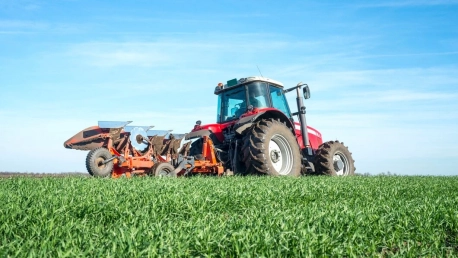Agriculture is at the forefront of an energy shift critical for both feeding a growing global populace and tackling climate change. As urgency mounts, the sector is embracing alternative fuels, a move that signals a significant transformation in farming practices. Reflecting its historical evolution through various energy epochs—animal to machine, steam to diesel—the industry is embarking on a sustainable journey. This transition to cleaner fuel sources is a pivotal step in harmonizing the enduring goal of nourishment with the imperative of environmental preservation. The adoption of eco-friendly fuels demonstrates the sector’s persistent adaptability and its vital role in shaping a greener future, ensuring that as it continues to produce the world’s food, it also contributes positively to the planet’s health.
Harnessing the Past: Lessons from Historical Fuel Transitions
Agriculture’s energy journey has been long and varied, illustrating an innate capacity to evolve with the times. The 19th-century shift from animal to steam power marked a profound change, unleashing a wave of productivity and signaling the initial decoupling from biological power. Coal-fired behemoths plowed fields with unprecedented might, transforming farming into an energy-hungry enterprise. Yet, this was just the beginning. The proliferation of oil and the tractor catalyzed another seismic shift, as mechanical behemoths displaced horses, simultaneously liberating vast swaths of land from fodder production and unlocking new agricultural potentials.Historically, farming has shown an open-mindedness to fuel sources, tinkering with machinery to run on whatever feedstock was locally abundant. This versatility manifested in engines that combusted diverse fuels, from coconut husks to vegetable oils. Early adoption of bio-based fuels underscores a willingness within the sector to pivot towards more sustainable and locally sourced energy solutions. Such innovations were not mere stopgaps but rather harbingers of a future where versatility in fuel choice would be vital for resilience and sustainability.
Embracing the Present: Modern Agriculture’s Green Transition
As climate change concerns grow, agriculture is turning to renewable energy options like biodiesel and HVO to power machinery, reducing reliance on traditional diesel. This marks a pivotal move towards greener, more sustainable farming methods. Industry leaders like AGCO and New Holland are pioneering this shift; consider New Holland’s innovative CNG tractors that utilize farm waste for fuel, reflecting a sustainable, circular economy approach.This movement to eco-friendly fuels is a deliberate step towards a sustainable agricultural future, incorporating both innovative technologies and age-old practices. Tractors running on biofuels represent a bridge between history and progress. Such advancements suggest that future farming will not only be about the yields but also about harnessing clean energy in harmony with the environment. As these practices mature, they will play a critical role in powering farm machinery, contributing to food security, and ensuring long-term sustainability.









